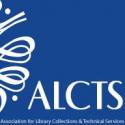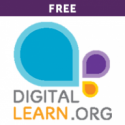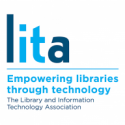
Librarians have become strong proponents for integrating makerspace technologies into the classroom and learning experience, utilizing AR/VR in library services, and advocating for the creation, discovery, and use of Open Educational Resources. As libraries move forward with adopting these new initiatives, it is essential to keep accessibility in mind.

The RDA Toolkit Restructure and Redesign (3R) Project is underway. Between April 2017 and April 2018, the RDA Toolkit content will be frozen to allow for some significant changes and updates to the RDA instructions and how they are presented. Kathy Glennan, ALA Representative to the RDA Steering Committee, will provide an update on the 3R Project, and what types of changes to expect in RDA next spring.

In this e-Forum, we will discuss what exactly UX and usability design means, how UX can be brought into issues of collection development and eresources management, and what struggles and successes that discussion participants have experienced with UX in the context of eresources. Participants will finish this e-Forum with an understanding of the possibilities and complications of implementing this framework for electronic resources - and with some practical ways to start the UX conversation at their own libraries.

Community members enter public libraries every day, hoping to complete life tasks many of us take for granted, but lacking the basic computer skills to accomplish them. DigitalLearn.org can complement the classes and one-on-one training your library staff are already providing. DigitalLearn.org is a collection of video-based tutorials to help inexperienced and low-level learners with computers and the internet. This free on-demand overview of PLA’s digital literacy tool for libraries includes specific information on how your library can start the process of creating its own DigitalLearn site.

This webinar demonstrates how the FAST (Faceted Application of Subject Terminology) vocabulary can be implemented across a range of library functions and services—both at the back and the front of the house. Two projects serve as case studies for understanding how libraries can harness the FAST vocabulary and related tools to streamline metadata work and improve user experiences.

This course is geared toward librarians and library staff who are comfortable with the basics of using the internet and are looking for a responsible way to add visually attractive design elements to web content.

Learn how to find and use free-floating subdivisions using the Library of Congress Subject Headings (LCSH) Pattern Headings described in the Subject Headings Manual (SHM) worksheet "H 1146 Subdivisions Controlled by Pattern Headings."

Library staff face an unprecedented challenge of providing more digital skills programming, and in some cases, for the first time virtually. In PLA’s recent survey of more than 2,500 public libraries, 61% reported that they are adding virtual programming and 41% are expanding online virtual reference help. Two of the greatest needs of those surveyed are expanding e-services to patrons, especially those with limited internet access, and meeting anticipated higher demand for services for those most impacted by the crisis.

Many libraries use digital repositories as solutions for preserving, managing, and sharing their digital resources. In this e-forum we will discuss digital repositories broadly, giving participants an opportunity to share and learn about emerging trends, best practices, and strategies for tackling common challenges.
